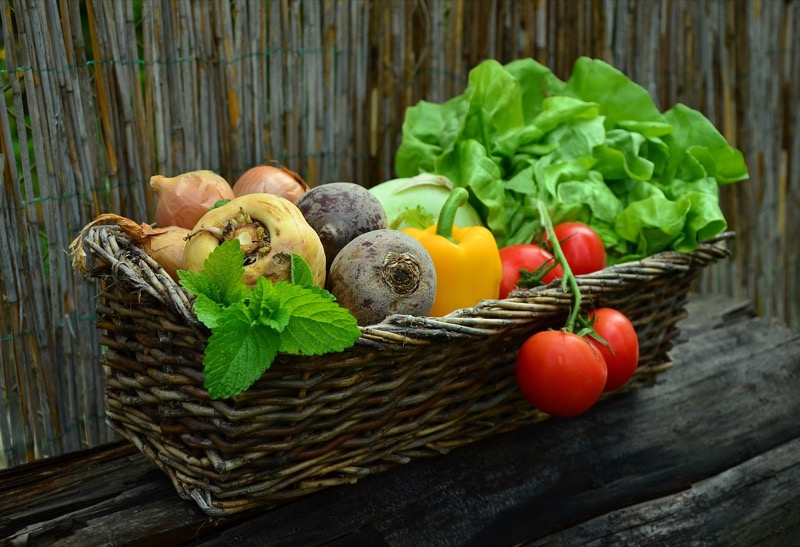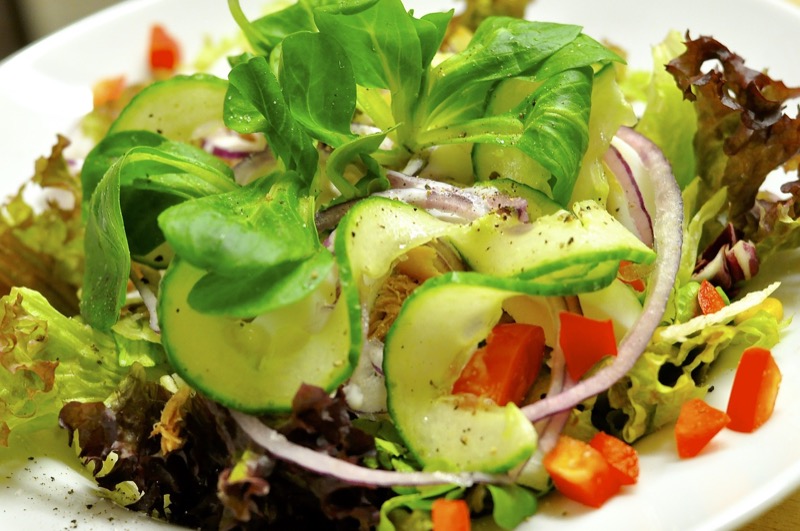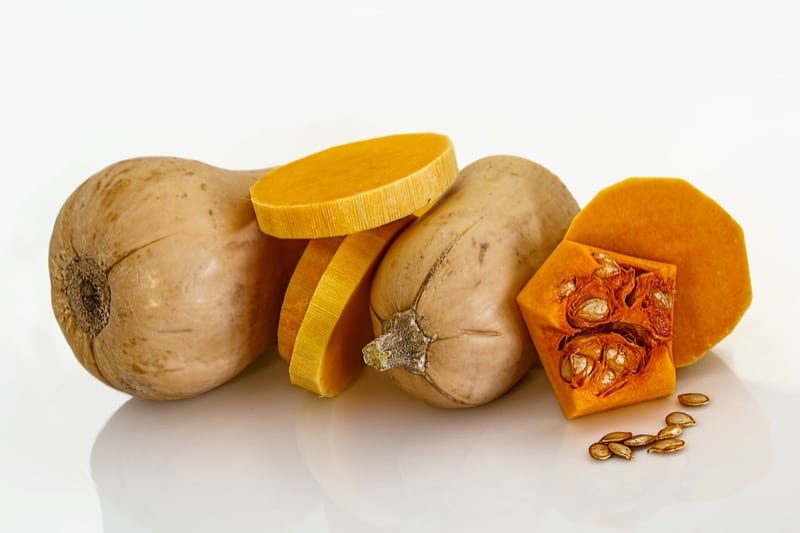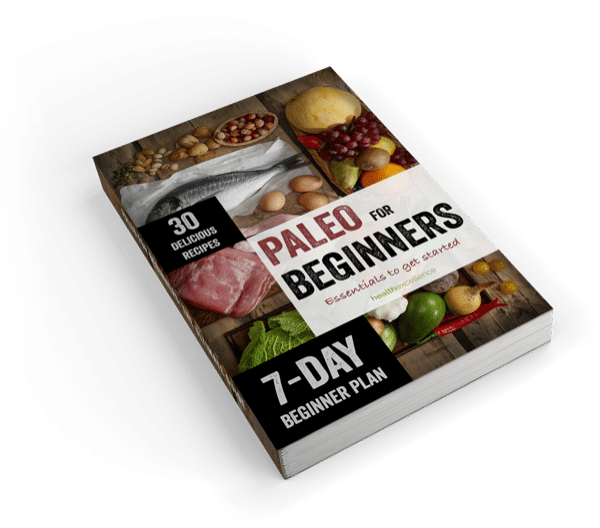Losing weight with the help of vegetarianism gives one of the most effective weight loss results. Apart from the fact that the body gets rid of extra pounds and other unnecessary wastes (toxins, radionuclides and so on), all those who followed the vegetarian diet noticed mood improvement and the feeling of comfort in their body. And this is a rarity when it comes to diets: to lose weight and still feel great.
Basic principles of vegetarian diet
Basic principles of the vegetarian diet are probably familiar to all of you since I guess everybody has heard about vegetarianism. The basic rules of such a diet are as follows.

Food selection:
- food of animal origin should be excluded;
- missing nutrients (protein, vitamins and amino acids) are replenished from plant foods: be ready to eat only fruits, berries, vegetables, herbs, seeds, nuts, beans, whole wheat or bran bread;
- in order to supply the body with vitamin B12, which is not contained in foods of plant origin, you should not exclude dairy products and eggs from vegetarian diet;
- consumed dairy products (milk, kefir (cultured milk), yogurt, cottage cheese) should be low-fat;
- salad dressing should not include mayonnaise; use only olive oil;
- fish is not prohibited, but is limited only to low-fat sorts, and in very small quantities (if you have such a strong desire to consume it);
- you need to drink at least two liters of purified (filtered) or inorganic (non-carbonated) water per day;
- limit the consumption of sugary, fried, salted, pickled and canned foods.
Starting the diet:
- if you have never sticked to a vegetarian lifestyle and have always eaten meat, you can not give it up too suddenly: start reducing its consumption two weeks before starting the diet.
Breaking the diet:
- breaking the diet should be as careful as its beginning, especially if it lasted more than two weeks;
- on the first day after breaking the diet, include fat dairy products into your diet;
- on the second day include fatty sorts of fish;
- on the third day you can boil a slice of low-fat (no more than 200 grams) chicken or beef meat.
Diet length:
- the duration of the vegetarian diet is defined individually based on the results achieved and own well-being;
- you can stick to the diet for one week, or for the whole month, but no longer;
- you need a break after the diet for at least a month in order to let the body take all necessary nutrients from meat.

Diet:
- vegetarian diet is not fasting, which means three main meals remain the same: breakfast, lunch and dinner;
- it is recommended to have a breakfast from 7 to 9 a.m., lunch – from 11 a.m. to 1 p.m., dinner – from 4 to 6 p.m.;
- after 6.00 p.m. the famous rule of all diets – you cannot eat anything, only one unsweetened fruit (for example, green apple) or low-fat yogurt (one cup);
- the diet period itself will not be painful for you: this weight loss method gives only a pleasant feeling;
- if you madly want something to eat in between meals and you start developing depression, have a snack, but this snack should be light and fit the basic rules of the diet: it may be an apple or a handful of seeds, but not a hot dog or a can of cola.
If you don’t mind completely avoiding meat and following a diet consisting entirely of plant foods, in this case, a vegetarian diet with its principles – is your weight loss option to give a shot at. Moreover, you will get rid of not only extra pounds but also of toxins, waste products and may even cure some diseases.
Effect of vegetarianism on the body
Here’s a fact that you need to know: plant foods can renew the body, improving the function of many of its systems. The benefits of the vegetarian diet are confirmed by various international associations of physicians and nutritionists. As a result of this weight loss method:
- plant foods contain a minimum amount of fat and calories, and therefore the weight decreases rapidly;
- strengthens the immune system;
- the body is cleansed of toxins, its function becomes normalized;
- improved mood;
- improved overall health;
- blood pressure is also normalized;
- blood vessels become purified, blood circulation is improved generally and blood flow to the brain and heart in particular, in such a way the heart function is significantly improved;
- the risk of cancer is reduced;
- symptoms of rheumatoid arthritis become less noticeable;
- decreased phosphorus levels in urine and blood, as a result it improves the state of those who suffer from chronic kidney disease.

One week sample menu of vegetarian diet
The sample menu provided below is detailed, but it’s only for you to get the idea of how it works. It means that you should only use it as a reference. You can alternate between products, but at the same time take into account all the necessary substances needed for your body.
Be sure to stick to the following doses, because your appetite should be restrained during the diet. It is better to cook food in a pot with non-stick coating and with purified water.
So, let’s check out a sample one-week menu.
Day 1
- Breakfast: oatmeal with milk (150 g), low-fat yogurt (200 ml).
- Lunch: soup of your favorite vegetables (200 ml), rye bread (1 toast), salad of fresh vegetables with olive oil (200 g).
- Dinner: vegetables cooked on the grill (200 g); boiled brown rice (150 g).
Day 2
- Breakfast: 2 boiled eggs, rye bread (1 toast) with tomato and cheese.
- Lunch: salad of apple, celery, low-fat cheese (grated), olive oil, lemon juice and spices (200 g).
- Dinner: 2 baked potatoes of medium size, squash caviar (150 g), whole wheat bread (2 toasts).
Day 3
- Breakfast: rice porridge with milk (150 g), 2 medium-sized pears, low-fat yoghurt (150 ml).
- Lunch: soup with soy tofu (200 ml); steamed vegetables (150 g); fresh bun, sprinkled with sesame seeds; one medium-sized orange.
- Dinner: steamed vegetables with mushrooms and onions (200 g).
Day 4
- Breakfast: one boiled egg, cucumber (a couple of slices), a sprig of parsley, rye bread (1 toast), low-fat yogurt (200 ml).
- Lunch: stuffed peppers with rice and vegetables (200 g), 2 medium-sized apples.
- Dinner: 2 boiled potatoes of medium size, boiled green beans (150 g), 2 medium-sized tomatoes.
Day 5
- Breakfast: oatmeal with milk (100 ml), low-fat yogurt (200 ml), one medium-sized banana.
- Lunch: lentil soup (200 ml), a salad with carrots, cabbage and olive oil (150 g), 2 medium-sized kiwis.
- Dinner: vegetable stew (250 gr).
Day 6
- Breakfast: low-fat cottage cheese (100 g), low-fat yogurt (150 ml), any fresh fruit (100 g).
- Lunch: soup without meat (200 ml), salad with olive oil (150 g), one medium-sized apple.
- Dinner: cabbage, stewed with mushrooms (150 g); rye bread (2 slices), low-fat yogurt (200 ml).
Day 7
- Breakfast: cottage cheese casserole (150 g), low-fat yogurt (150 ml), one medium-sized orange.
- Lunch: barley porridge with milk (200 g), salad with cauliflower and olive oil (150 g), tomato juice (200 ml).
- Dinner: potato and vegetable casserole (200 g), roasted asparagus (150 g).
If you don’t know how to replace products correctly, stick to the above-provided sample menu. If you are satisfied with the menu, it remains only to find out for whom the vegetarian diet is contraindicated.
Vegetarian diet: contraindications
Like any other weight loss method, the vegetarian diet also has contraindications associated with disorders and failures in various organ systems. Don’t stick to the vegetarian diet in the following cases:
- Pregnancy;
- Children and teenage age (up to 18 years);
- Elderly people (after 60 years).
Vegetarian diet: results

The most interesting thing in the vegetarian diet is the results. Just how effective is it? Will you be satisfied with the results?
First of all, it must be noted that the number of lost pounds – is an indicator that depends on the individual peculiarities of the body. While obesity is triggered by internal problems in various organs, no diet will do wonders.
If you have no health problems, the menu was planned correctly and you stick to all the vegetarian diet rules, you will achieve impressive results. I’ve seen those who were at first skeptical about this diet, and then – after the diet – were more than satisfied with the results.
Those who have sticked to the vegetarian diet, provided the following figures. Here’s the thing I noted: it is guaranteed that you will lose 4 pounds per week. Some people even manage to lose up to 7 pounds during this period.
Those who don’t cheat and follow all the vegetarian diet rules, as well as complement the diet with at least some kind of physical activity, manage to lose up to 9 pounds per week. Sounds impressive, right?
So tell me: have you ever followed the vegetarian diet before? If so, how many pounds did you manage to lose and how did you feel during the diet? Let me know in the comment section below!






